Getting Warmer
The year 2015 has gone down as the hottest year on record, thanks to the closing of nuclear power plants.
-3 2x1.jpg)
A message from Curtiss-Wright
High-Temperature neutron flux detectors for Generation IV reactors and SMRs
The year 2015 has gone down as the hottest year on record, thanks to the closing of nuclear power plants.
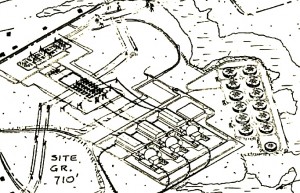
Perkins Nuclear Station layout as depicted in "Design Data and Safety Features of Commercial Nuclear Power Plants, Vol IV," Oak Ridge Nat'l Labs/Nuclear Safety Information Center, March 1975.
It is a common myth today that all of the nuclear plants historically ordered in the United States were unique, custom design and construction jobs. Many of the plants were built from standardized design drawings developed by established architect-engineer (A-E) firms in order to ease the work load and speed up progress on individual projects. In such cases, standard nuclear plant drawings were the basis for any given project the A-E took on. Over time, incremental changes were made in the drawings and of course customer-specific and site-specific changes needed to be made, as well as specific adaptations made for the nuclear steam supply system (NSSS) ordered by the customer. Stone & Webster as well as Sargent & Lundy were just two of the A-E firms that developed and used standard drawings, leading to there being a number of very similar nuclear plants in different places, built for different owners. Some projects, however, were even more repetitive than these.
Opinion by Will Davis for ANS Nuclear Cafe.
June is National Safety Month, an initiative of the National Safety Council. For more than 100 years, this organization has worked to promote awareness and further safety advocacy efforts to reduce accidental injuries and deaths throughout the United States. Preventing avoidable disasters is important in all energy industries, but it takes special precedence in the field of nuclear power.
by J.H. Stewart Melville III
Today's panel at the ANS 2016 Annual Meeting on hybrid energy systems might seem at first like somewhat of a misplaced effort, but it's certain judging by the varied content provided at this and other sessions this week as well as by comments of varied experts that grid flexibility will be the "name of the game" as time goes on. Hybrid energy systems, which combine more than one "prime mover" or energy generating source, may be one key to making it possible for nuclear energy to stay in the US game in the long term.
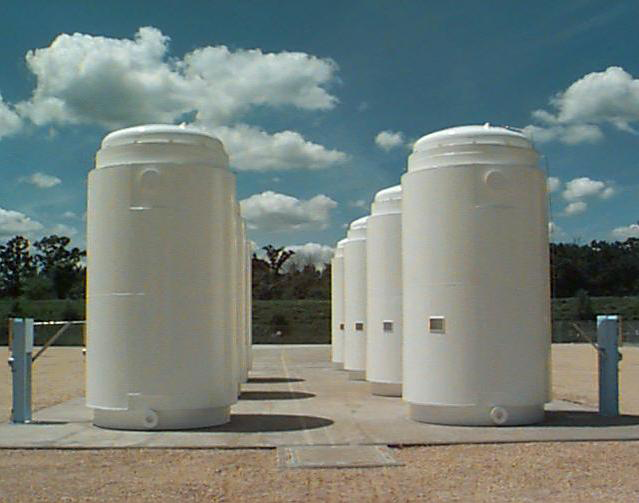
Used nuclear fuel storage; photo courtesy Oak Ridge National Laboratory, a division of the US Department of Energy
An interesting session at the ANS 2016 Annual Meeting, sponsored by the Fuel Cycle & Waste Management Division, saw the presentation of a number of interesting papers relative to the ever-increasing problem of used nuclear fuel at the various commercial nuclear plant sites in the United States. Not only does the used fuel (which is a far better term than "spent fuel," these days, since it can conceivably be reused) continue to accumulate at the nuclear plants, but there is also a considerable amount of used fuel being stored at various sites where the nuclear plants have actually been shut down, decommissioned and completely removed for years. Considering this, and the need to inventory, characterize and eventually move this material, a growing amount of interest is being shown in this field.
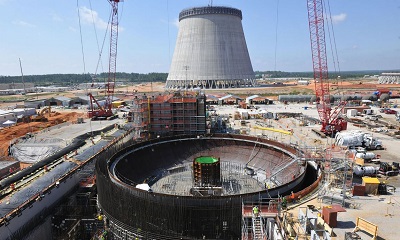
Today's panel discussion entitled New Nuclear Construction Around the World and which was chaired by past ANS President Ted Quinn, featured some solid information on the state of nuclear energy today. Four speakers, plus one special guest speaker, presented to an interested and engaged audience.
The 2016 American Nuclear Society Annual Meeting kicked off today (Monday, June 13) in New Orleans with a wonderful set of presentations on a wide variety of topics. ANS President Gene Grecheck opened the session and reminded those assembled that his mantra has been "We need nuclear, and nuclear needs ANS," following up with some of the success stories that ANS has been a part of in the past year:
Please consider signing this petition: Keep America's Nuclear Power Plants Working for US!
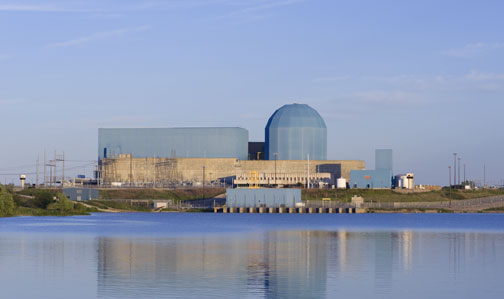
Clinton Power Station, courtesy Exelon Nuclear
Yesterday, June 2, 2016, may have marked a watershed moment in the present day history of nuclear power plants in the United States, when two nuclear plants were selected by their owner for shutdown far in advance of their license expiration dates for economic reasons. The fast-moving pace of plants being shut down under similar economic circumstances (unbalanced energy markets that favor other forms of energy to the detriment of nuclear) signals a broken system that must be changed, now.
http://www.eenews.net/tv/videos/2134 Today's matinee: an OnPoint interview with pronuclear environmentalist Michael Shellenberger, as he discusses the benefits nuclear energy has on the economy and the environment.
On May 26, 2016 at precisely 2:16 a.m., what will probably be the final large unit in the Tennessee Valley Authority (TVA) nuclear fleet - Watts Bar Nuclear Plant, Unit 2 - achieved its initial criticality. This event opens the final chapter of the extended construction history of this unit, and paves way for another gigawatt of generating capacity (in nameplate rating) to be added to TVA's generating portfolio.
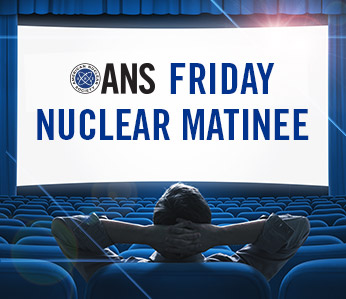
Our Friday Matinee for today is the latest of the excellent Vogtle Timeline videos produced by Georgia Power to document the construction progress of Vogtle Units 3 and 4. The series stands as one of the most thorough video documentations of nuclear plant construction ever filmed, and this latest update is every bit as informative as its predecessors.
Exelon is at a pivotal point where the continued operation of two plants, Quad Cities and Clinton, hinges on the legislative decisions of Springfield, Ill., at the end of May.
This story was originally posted in What's New section of ANS.org.
Dentists who want to see what is happening behind your teeth, enamel and gums can capture a complete set of dental X-rays in just a few minutes. But imagine if it took 252 films to get the complete picture.
In 1959, a small community in Ohio completed a lobbying effort to bring a modern marvel to town-a nuclear power plant. Piqua, a town of less than 20,000 people, took its place on the broader news map, and set its sights on the stars. The journey would stop short of the citizens' dreams.
Byline: the Nuclear Upended Team